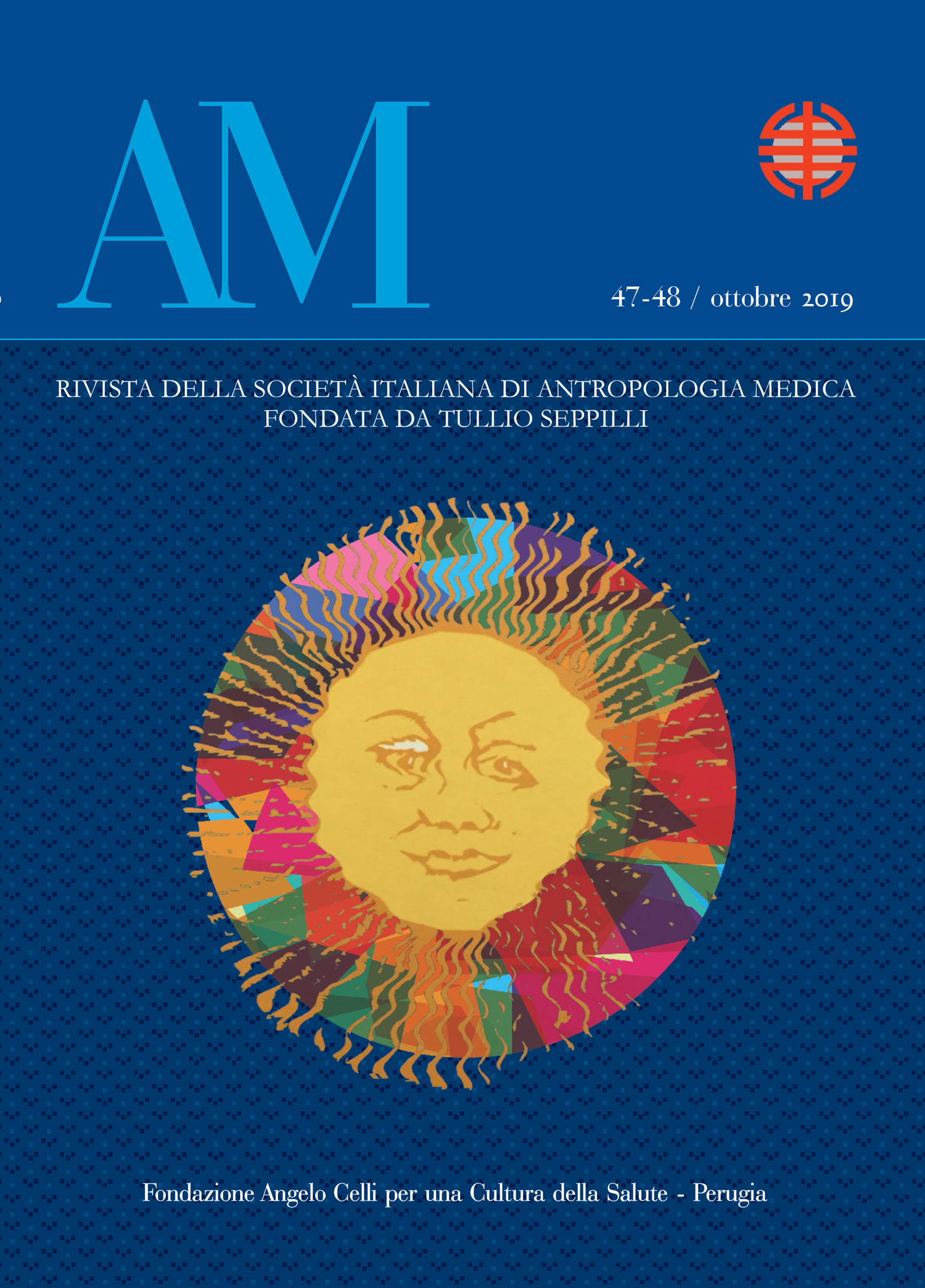Abstract
Body and writing: autobiography as a resort for research, for the acknowledgement of complexity and the recovery of shared awareness
In anthropological research autobiographic narratives have often been considered with some reservations, but since the eighties of the past century the illness narratives have increasingly assumed importance as a significant methodology to explore one of the most meaningful human experiences: the relationship with illness. In anthropological research autobiographic narratives have often been considered with some reservations, but since the eighties of the past century the illness narratives have increasingly assumed importance as a significant methodology to explore one of the most meaningful human experiences: the relationship with illness. This kind of narrative has the undoubted merit of bringing attention on individual status, but also implies some risks. While it can help biomedicine to pursue certainly important objectives (e.g. improving the patient-doctor relationship and communication and the therapeutic process), at the same time it can reduce the transformative power of the story teller’s point of view and of its breaking into the processes concerning the body illness and health. The experience of listening to a number of autobiographic tales, and particularly a recent (and still in progress) experience of autobiographic workshops within the framework of the AIEMS (Associazione italiana di epistemologia e metodologie sistemiche), Health Ecology Lab, support the hypothesis that autobiography can be a great resource in anthropological research. Such workshops, made using body experience and writing, open up the possibility to access memories that activate narratives of health and enhance the consciousness of the complex relationships connecting health with cultural models, social and economic reality and more generally with the wider environment.
Con il corpo e con la scrittura: l’autobiografia come risorsa per la ricerca, il riconoscimento della complessità e il rilancio di processi di consapevolezza condivisa
Le narrazioni autobiografiche sono state spesso considerate con una certa diffidenza dalla ricerca antropologica, ma a partire dagli anni Ottanta le illness narratives si sono affermate in modo sempre più consistente, divenendo una metodologia importante per indagare il campo di una delle più significative esperienze umane: il rapporto con la malattia. Questo tipo di narrazione ha l’indubbio merito di portare l’attenzione sullo statuto del soggetto, ma contiene anche alcuni rischi: primo tra tutti quello di concentrarsi su un solo aspetto dell’esperienza salute/malattia, consentendo alla biomedicina di utilizzarla a fini sicuramente ottimi (come il miglioramento della relazione medico-paziente, della comunicazione, del percorso terapeutico), ma che appaiono ridurre la portata trasformativa insita nell’irrompere del punto di vista del narratore nei processi riguardanti il corpo, la malattia e la salute. L’ascolto di numerosi racconti autobiografici e soprattutto l’esperienza recente (pertanto ancora in progress) di laboratori di pratica autobiografica all’interno del Laboratorio di Ecologia della Salute dell’AIEMS (Associazione italiana di epistemologia e metodologie sistemiche), realizzati utilizzando come dispositivi il corpo e la scrittura, sostengono l’ipotesi che l’autobiografia possa essere una grande risorsa per la ricerca antropologica, aprendo la possibilità di accedere a memorie che attivano narrazioni di salute e incrementando la consapevolezza delle complesse relazioni che connettono la salute con i modelli culturali, la realtà sociale ed economica e l’ambiente, complessivamente ed ecologicamente inteso.


